10 Kitchen Items You Should Never Clean in a Dishwasher
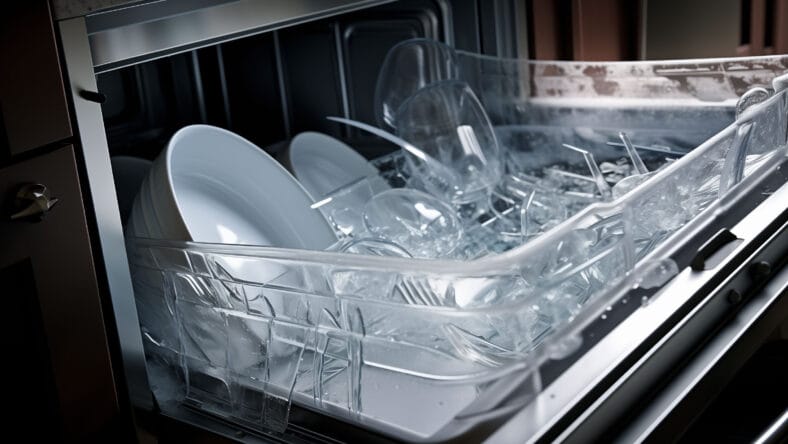
We couldn’t live without a dishwasher until something breaks, like a sentimental plate or your beloved coffee cup. They can save so much time. These are 10 items that you should never put in the dishwasher to save yourself grief and aggravation.
Air Fryer Basket
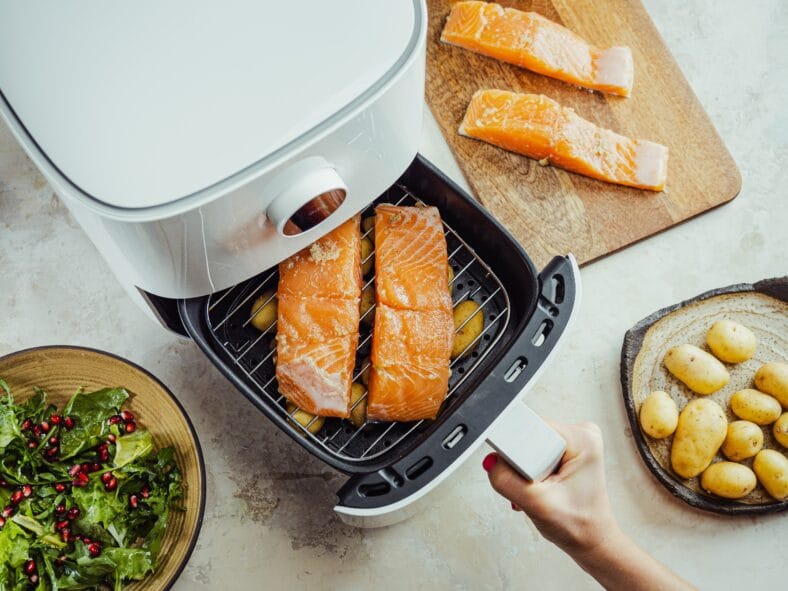
I apologize for popping your air-fried balloon, but to preserve the integrity of that surface, it is advisable to hand wash this portion. The basket contains numerous nooks where dishwasher detergent can get stuck and contaminate your future frying adventures, even though the maker claims that it is dishwasher safe because of the inside non-stick coating.
Wooden Cutting Board
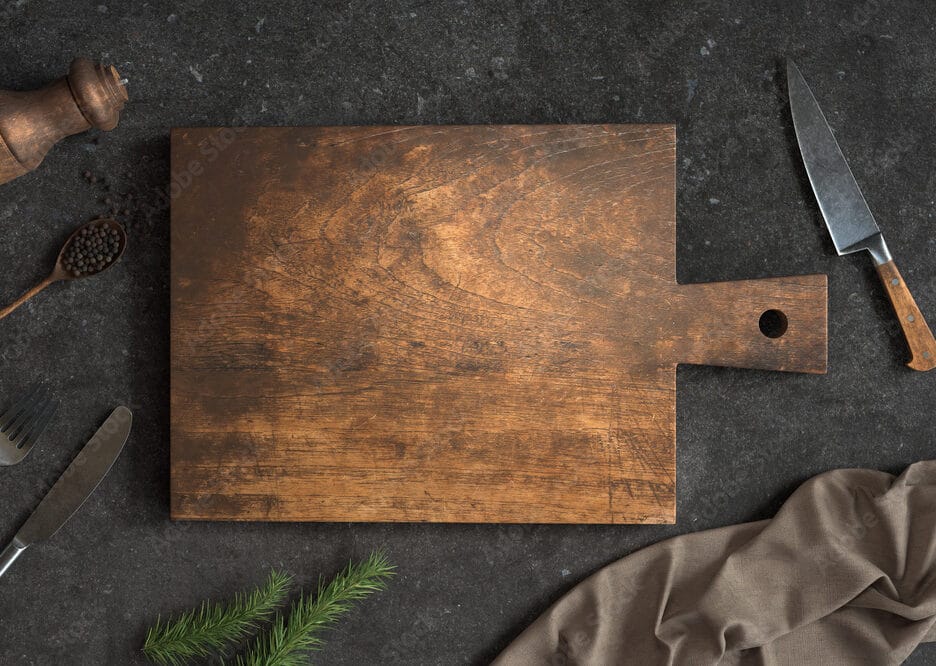
It is not advised to wash a wooden cutting board in the dishwasher for several reasons. First of all, wood may distort and break in a dishwasher due to the extreme heat and moisture. Wooden cutting boards are constructed from glued wood pieces. The glue may get weakened by the dishwasher’s extended exposure to heat and water, which could cause the board to crumble. Furthermore, the expansion and contraction of the wood brought on by the heat might cause warping or splitting. This undermines the board’s structural integrity in addition to negatively affecting its appearance and level surface, which makes it harder to use.
Second, the strong detergents used in dishwashers can remove the natural oils that condition hardwood boards. This can cause the wood to dry out and become brittle over time, increasing the likelihood that it will shatter and crack. Dishwasher detergents also contain chemicals that have the potential to infiltrate into wood pores and contaminate food. A wooden cutting board should ideally be hand-washed with warm water and mild soap to extend its life and keep its natural wetness. It should also be condition-treated with mineral oil that is acceptable for use around food.
Wooden Spoons
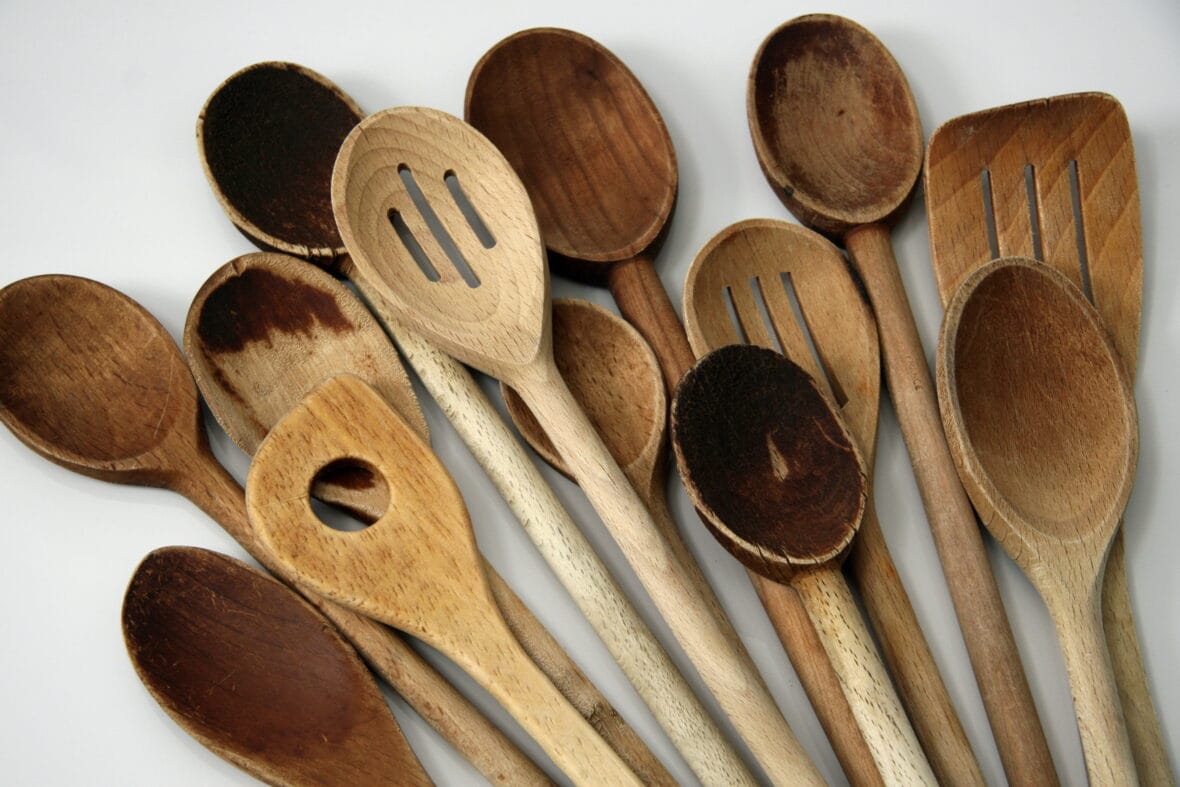
Similar to chopping boards, wooden spoons may not last as long or be as high-quality if cleaned in the dishwasher. Wooden utensils can sustain serious damage from the dishwasher’s harsh environment, high temperatures, and repeated contact with water and detergents. Wood naturally absorbs water and becomes porous, which can cause swelling and warping. This distortion can lead to the wood splitting or cracking over time in addition to affecting the spoon’s shape and usefulness. Hand wash and apply oil frequently.
Non-Stick Pans
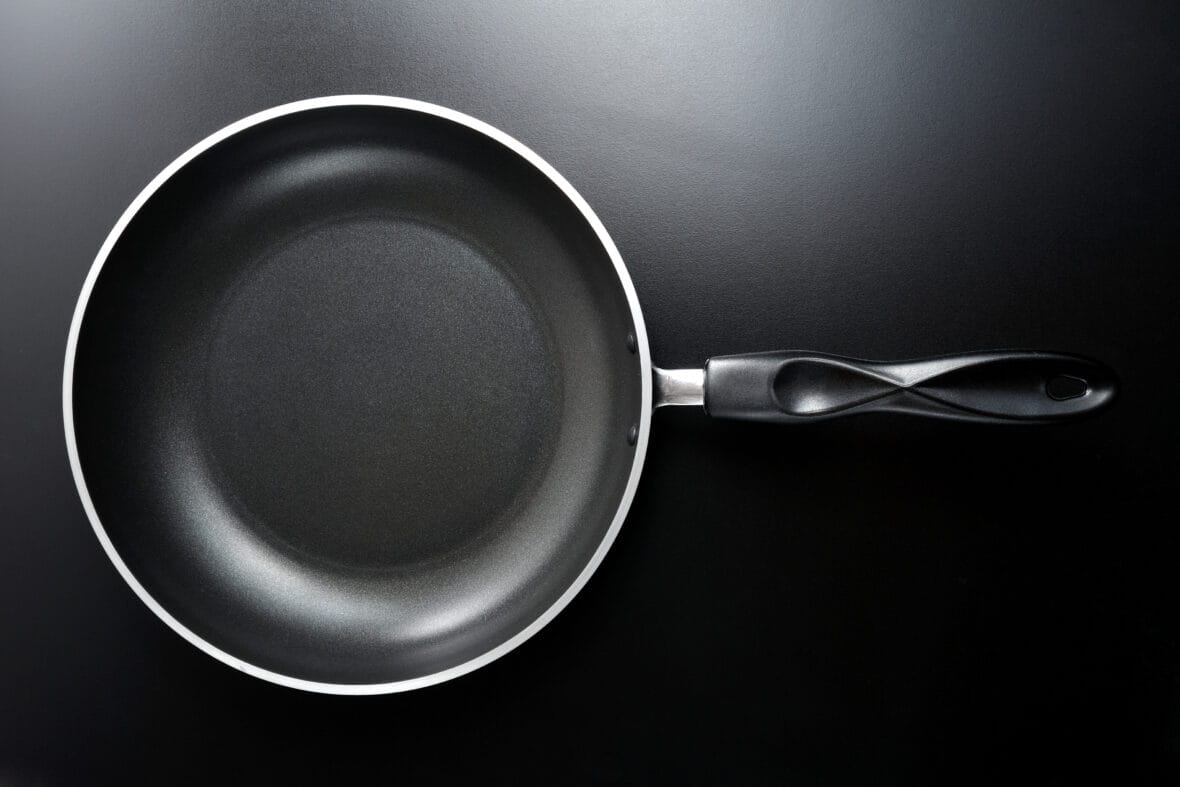
The deterioration of the nonstick coating is the main cause for concern. The warmth and detergent in dishwashers can be too strong for the fragile nonstick surface. Heat and cleaning products together have the potential to degrade or peel off the nonstick coating, greatly diminishing the nonstick qualities of the pan. This creates health risks if the flaked-off particles contaminate the meal in addition to impairing the pan’s ability to cook, as food may start to stick and burn.
Check Out: How to Clean a Burnt Pan Without Damage
Cast Iron Pans
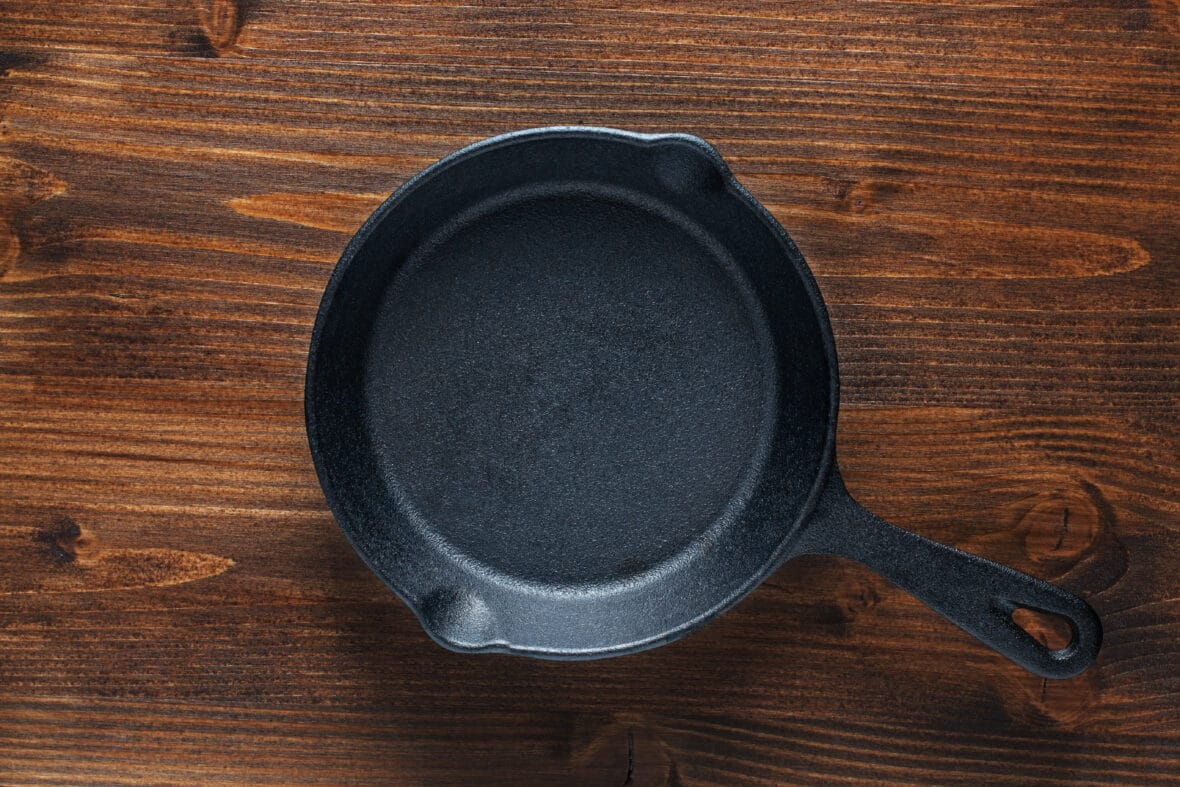
The main problem is that the cast iron’s seasoned coating may be removed by the harsh environment of the dishwasher. What gives cast iron pans their non-stick qualities and prevents them from rusting and corrosion is this seasoning, a coating of polymerized oil. Dishwasher heat, moisture, and potent detergents can degrade this seasoning, causing the pan to lose its non-stick coating and become prone to rust. Furthermore, rusting can be caused by the dishwasher’s extended water exposure, particularly if the pan is not dried right away after cleaning.
Also Read: 5 Delicious Cast Iron Skillet Recipes You Need to Try
Chef Knives
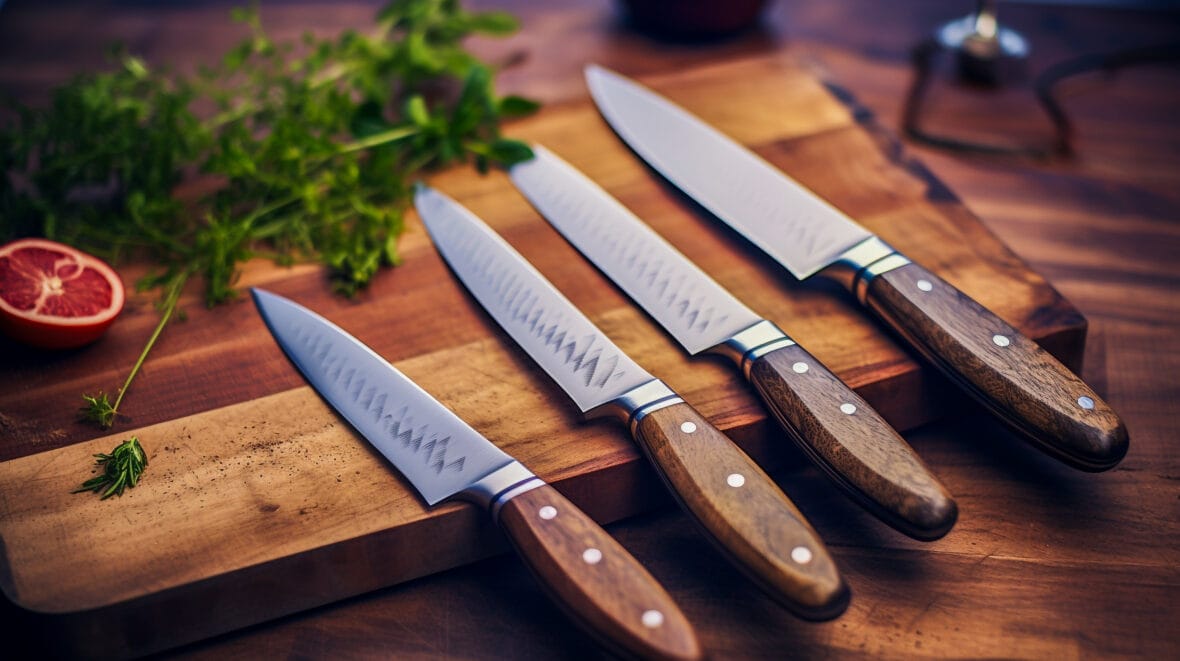
Dishwasher detergents have the potential to corrode metal, dulling the blade. This dulling not only reduces the knife’s cutting effectiveness but also increases the risk of harm when using it because a dull knife needs more force to cut. The dishwasher’s intense heat and moisture can also harm the knife’s handle, particularly if it’s composed of wood or a particular type of plastic that might bend, break, or lose its shine.
To-Go Plastic Containers
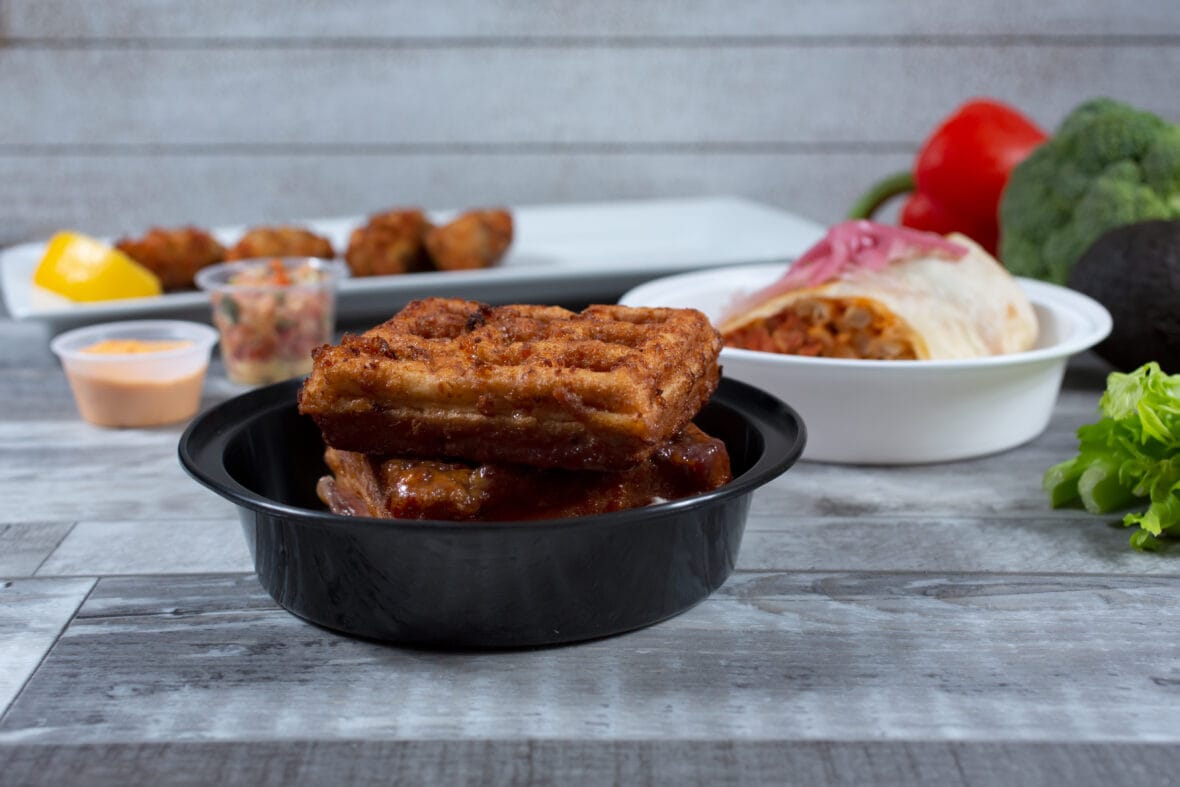
Placing plastic to-go containers in the dishwasher might cause issues for the dishwasher’s efficiency as well as the containers themselves. Many of these containers are not made to last in dishwashers because of the high temperatures and abrasive detergents they contain. The plastic may melt or distort due to the extreme heat, changing the container’s shape and perhaps releasing dangerous substances. Food might be stored in containers that are distorted or deformed because they will not seal properly.
Furthermore, loading plastic take-out containers into a dishwasher may reduce the washing cycle’s effectiveness. The water jets can fling these lightweight containers around with ease, possibly obstructing the filters or spray arms.
Water Bottles
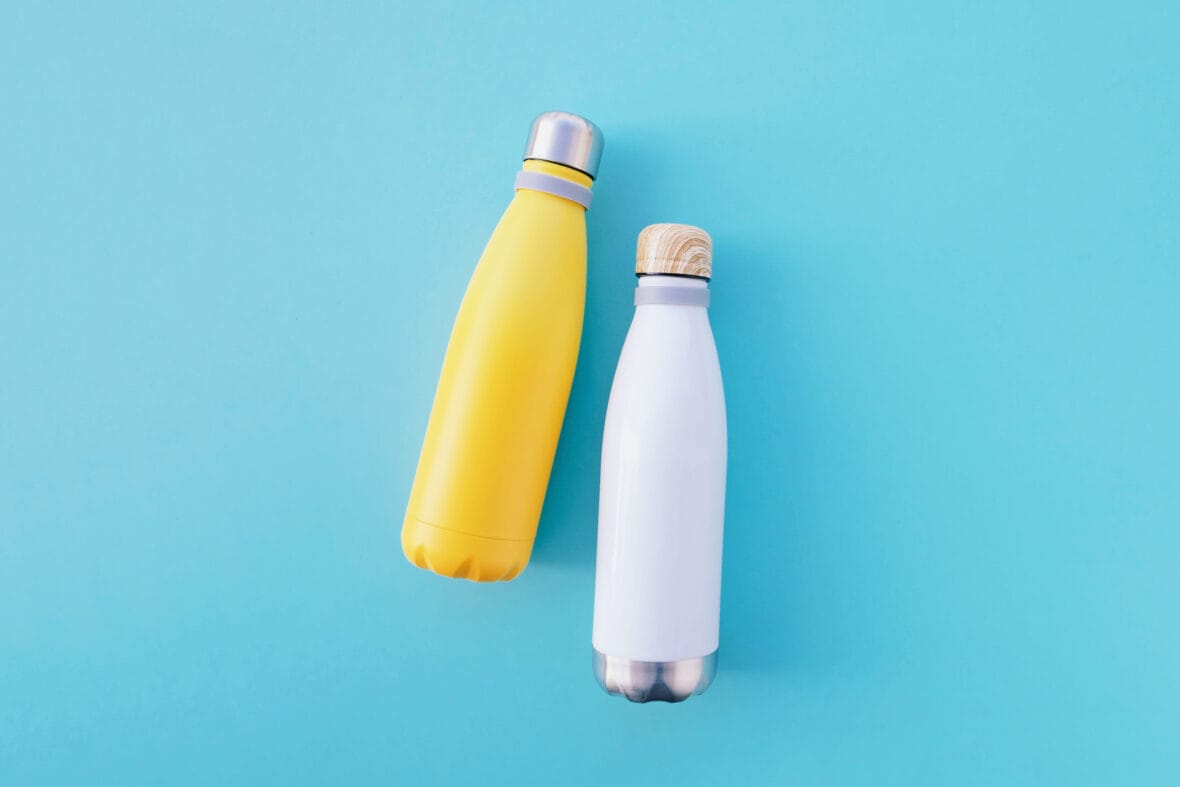
Even though stainless steel is often strong and corrosion-resistant, the dishwasher’s intense heat and aggressive detergents can damage the bottle’s integrity. To maintain liquids at a specific temperature, insulated layers are found in many stainless-steel water bottles. This insulation may be harmed by the dishwasher’s high temperatures, which will lessen the bottle’s ability to keep temperature. Furthermore, the heat from the drying cycle and the abrasive action of dishwasher detergents can cause any painted or printed graphics on the bottle to fade or peel off. This increases the risk of corrosion over time by exposing the underlying metal to the elements and affecting the bottle’s aesthetic attractiveness.
Apart from the possibility of causing harm to the bottles, running them through a dishwasher may not fully clean the inside of them. Most water bottles have an expansive neck that makes it difficult for water and detergent to reach all internal surfaces, particularly in dishwashers without dedicated bottle-cleaning jets. The accumulation of bacteria and mold can result from this inadequate cleaning, especially in difficult-to-reach places like the bottle’s bottom or the cracks in the lid.
Baby Bottles
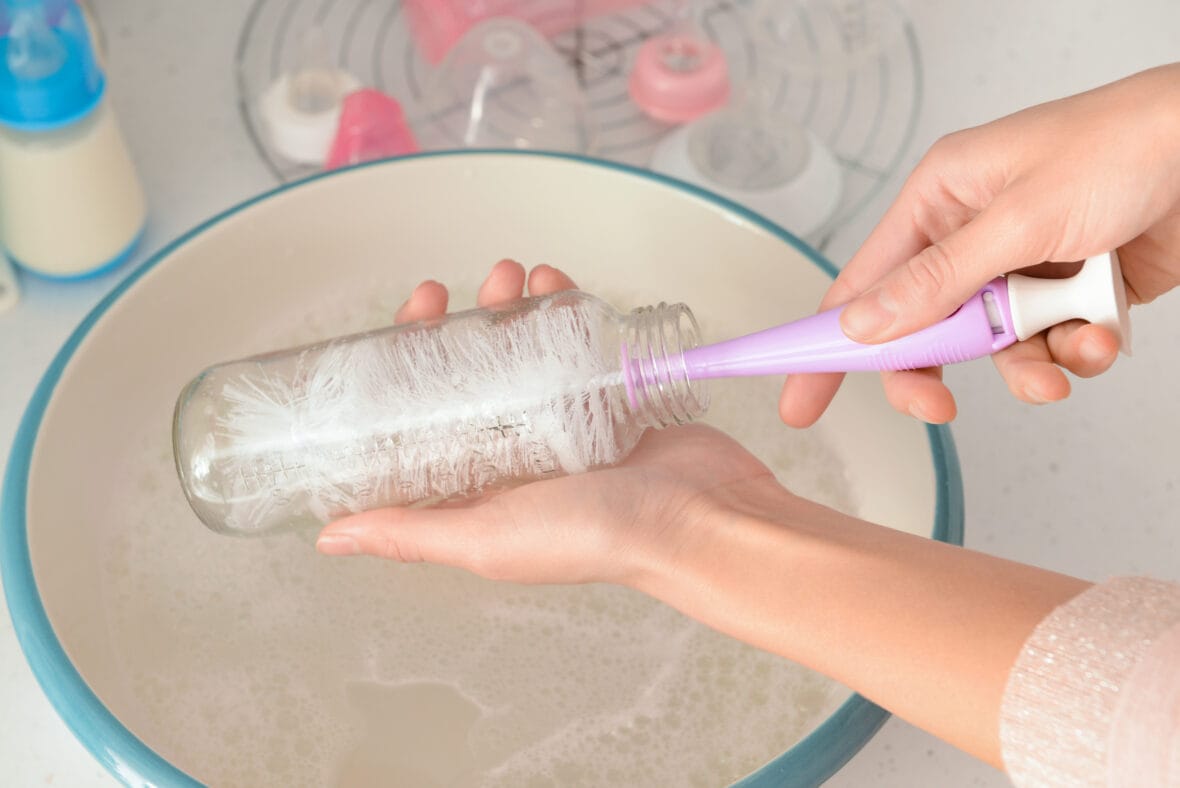
There are several reasons why it can be challenging to put baby bottles in the dishwasher, but mainly two: their material integrity and cleanliness. Because babies are more vulnerable to bacteria and other hazardous germs, baby bottles must be carefully cleaned and sterilized before being used. Dishes can be cleaned thoroughly in a dishwasher, but the level of sterilization needed for infant bottles may not always be reached. Baby bottles have small necks and crevices that make it difficult for dishwashing water jets and detergents to thoroughly clean the entire bottle. Furthermore, the high heat of the dishwasher can bake on formula and milk residues, making them more difficult to remove and perhaps encouraging the spread of bacteria.
Furthermore, baby bottle components may sustain harm from the harsh conditions found in dishwashers. The high heat and strong detergents used in dishwashers may damage the plastic, silicone, and other components found in many bottles. The bottles may leak, malfunction, or discharge chemicals as a result of this exposure, which may also cause warping, melting, or material degradation. Dishwasher detergents can also wear out bottles and their components due to their abrasive nature.
Frosted Glass

These glasses’ distinctive frosted appearance, which is frequently the result of sandblasting or acid etching, can be delicate to the rigorous cleaning conditions found in dishwashers. Dishwasher temperatures, detergents, and the abrasive action of water jets can cause the frosted texture to deteriorate and lose its characteristic matte appearance. This may cause the glasses to appear uneven or spotty over time. Furthermore, under the dishwasher’s harsh cleaning and heating cycles, frosting that is put as a coating rather than etched into the glass may begin to peel or flake off.
Also Read: 10 Kitchen Tools to Make Cooking at Home Easier
Explore More About:Home & Garden